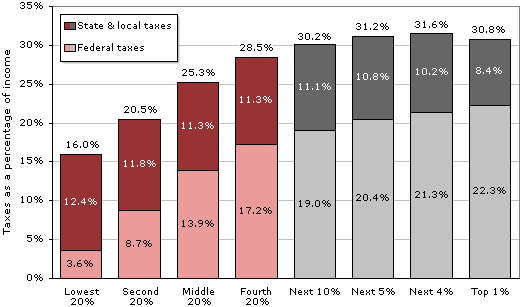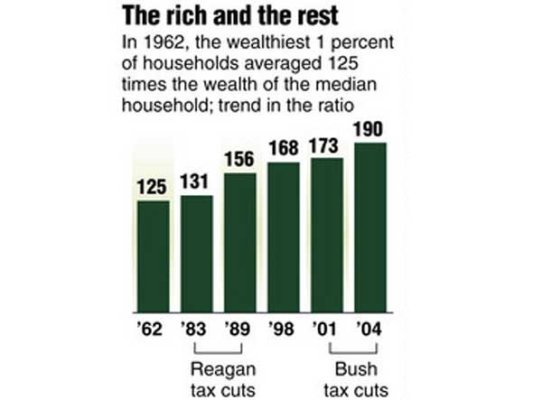I saw the chart below, which is supposed to be from IRS numbers in 2008. I also keep hearing on the news that the "rich" should have to pay their fair share as a way to get us out of the debt/deficit crisis. From the data alone, it would seem to me that this is already happening and how much more progressive can we get with the tax code and still have some semblence of an "ownership" culture in this country?
And, I know that our tax code has a host of special interest sponsored loopholes that I think should be cleaned up. But, even with those and a couple high profile examples of rich people or companies using them to their advantage, the numbers don't lie. The rich people in this country pay for the bulk of the costs already and still seem to get villified as being greedy and selfish.
What do you think? Are the rich under or over taxed and is this rhetoric we hear a ligitimate strategy or just political trumpeting?
The top 5% of all taxpayers (income split on this group was at $159,619 in 2008) paid 58.72% of all federal individual income taxes in 2008.
Let's continue to break this down:
Top 10% (Income Split Point $113,799) Paid 69.94% of Federal Individual Income Taxes
Top 25% (Income Split Point $67,280) Paid 86.34% of Federal Individual Income Taxes
Top 50% (Income Split Point $33,048) Paid 97.30% of Federal Individual Income Taxes
Bottom 50% (Anyone Making Less Than $33,048) Paid 2.7% of Federal Individual Income Taxes
And, I know that our tax code has a host of special interest sponsored loopholes that I think should be cleaned up. But, even with those and a couple high profile examples of rich people or companies using them to their advantage, the numbers don't lie. The rich people in this country pay for the bulk of the costs already and still seem to get villified as being greedy and selfish.
What do you think? Are the rich under or over taxed and is this rhetoric we hear a ligitimate strategy or just political trumpeting?
The top 5% of all taxpayers (income split on this group was at $159,619 in 2008) paid 58.72% of all federal individual income taxes in 2008.
Let's continue to break this down:
Top 10% (Income Split Point $113,799) Paid 69.94% of Federal Individual Income Taxes
Top 25% (Income Split Point $67,280) Paid 86.34% of Federal Individual Income Taxes
Top 50% (Income Split Point $33,048) Paid 97.30% of Federal Individual Income Taxes
Bottom 50% (Anyone Making Less Than $33,048) Paid 2.7% of Federal Individual Income Taxes




